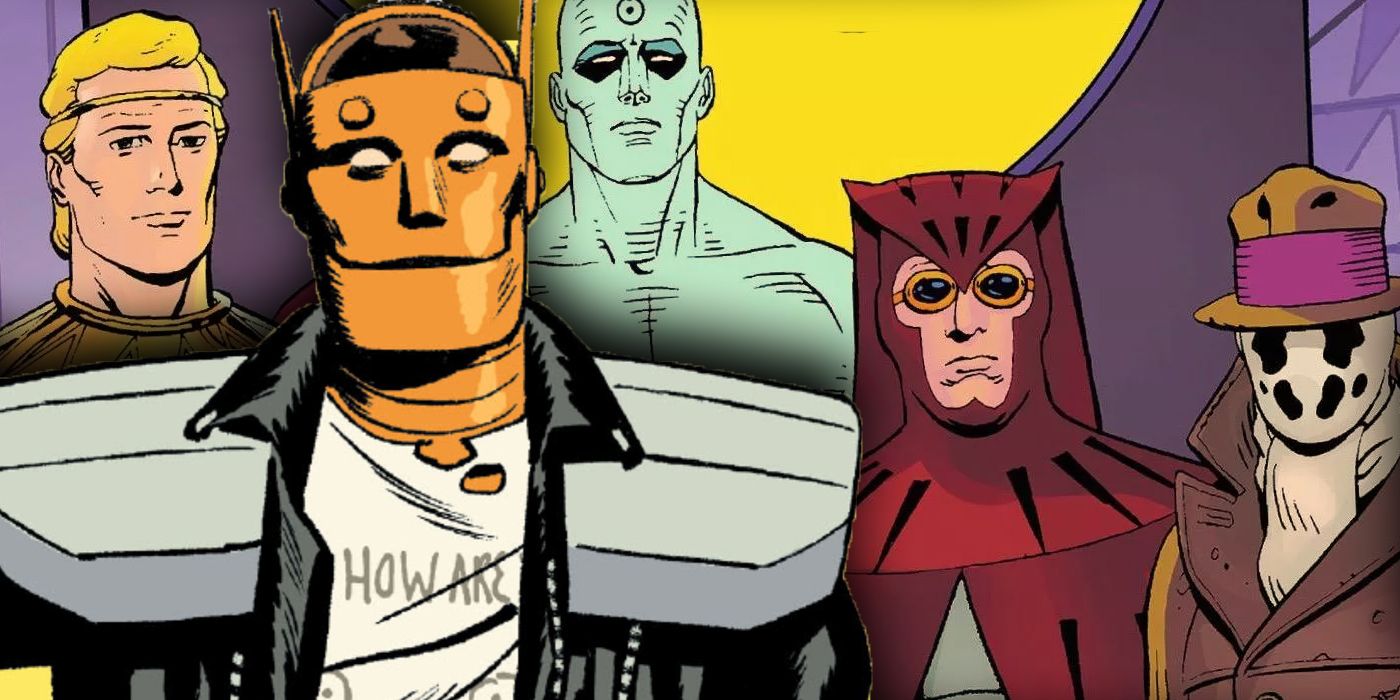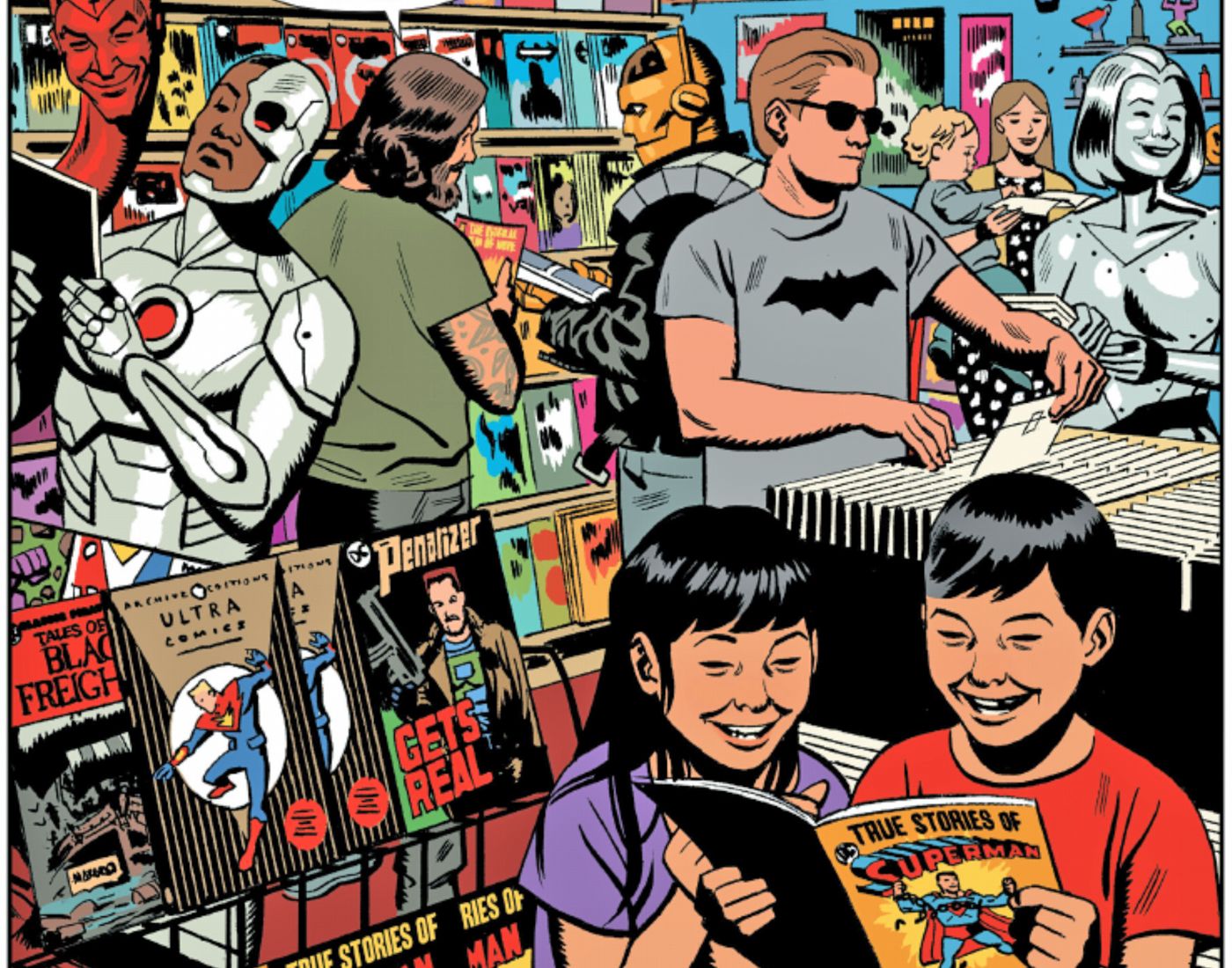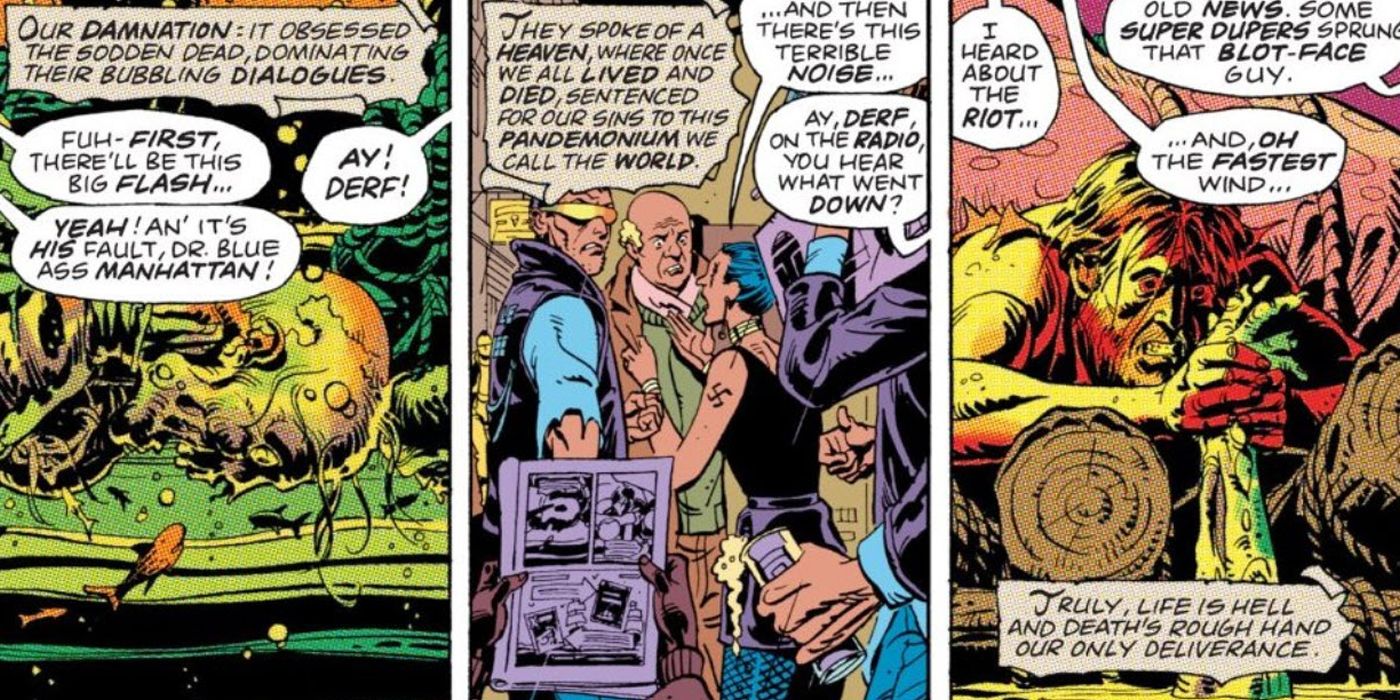WARNING: The following contains spoilers for "Summer Bummer," a story in DC Cybernetic Summer by Max Bemis, Greg Smallwood and ALW's Troy Peteri, on sale now.
In between potentially world-ending battles and universe-rebooting Crises, the DC Universe and its denizens find various ways to have fun, as showcased in the DC Cybernetic Summer Special. Featuring numerous DC heroes and villains relaxing and tending to their civilian lives, the book's fun stories highlight less prominent characters like the Metal Men and Doom Patrol's Robotman.
These stories eschew supervillain battles to focus on the character's every day hobbies, such as hanging out at the beach, discussing their favorite anime, and going to the comic book store. And during his trip to the local comic shop, Robotman passed by a comic book that's featured in Alan Moore and Dave Gibbons' Watchmen in a moment that adds another small part of that iconic story's world to the DC Universe.
In "Summer Bummer," Robotman is trying to hang out with his friend Mike. This story sees them laying about on the beach and going to the club. After a misunderstanding, they eventually find themselves in a local comic book store to pick up some of their favorite titles. They even encounter Cyborg and a few of the Metal Men along the way.
According to their conversation, Robotman is a frequent reader of traditional superhero comic books, whereas Mike prefers more indie comics. The store is filled with superhero and comic book memorabilia, including action figures and a Green Lantern logo poster. There are even books claiming to contain true stories about Superman and Batman.
However, one of the books they pass by stands out the most. Along with figures and comics of the Multiversity character Ultraa, there's also a copy of Tales of the Black Freighter, the story within a story of Alan Moore and Dave Gibbons' Watchmen.
Tales of the Black Freighter exists within the narrative of Watchmen as its own comic book, though its story has thematic parallels with the story of Adrian Veidt himself. The pirate theme of the tale was meant to be as directly opposed to the main story's superheroes as possible. Moore famously surmised than in a world where superheroes were an actuality, comic book readers would turn to other topics for escapism, such as piracy, horror, fantasy and romance.
The story itself has a young shipman being the lone survivor of the attack on his ship. Using what was left of his shipmates to craft a raft, he manages to return to his home, hoping to warn them of the Black Freighter that had attacked him and is sure to come back. Believing that the Black Freighter may have already claimed his town, his leads to a number of moral mistakes which leave innocents dead in the young man's wake, including his wife. In the end, the ship does come, with the young man having been its goal all along.
This of course isn't the first time that Watchmen and the broader DC Universe have crossed over in some form or another. As far back as the Post-Crisis DC comics, Denny O'Neil and Denys Cowan's run on The Question had the faceless protagonist reading Watchmen and admiring Rorschach, who was ostensibly based on the Question. More recently, the DC Universe itself was rebooted by none other than Doctor Manhattan, with his tampering with the timeline being used as the explanation for the changes during the New 52 era, as explored in Geoff Johns and Gary Frank's Doomsday Clock.
While the precise nature of the current relationship between Watchmen and the DC Universe is still being unveiled by Dark Nights: Death Metal, this story reveals that Tales of the Black Freighter exists in both Watchmen's world and the DC Universe as works of fiction, with everyday citizens none the wiser that the fictional character that they're reading had an incredible impact upon their lives.



